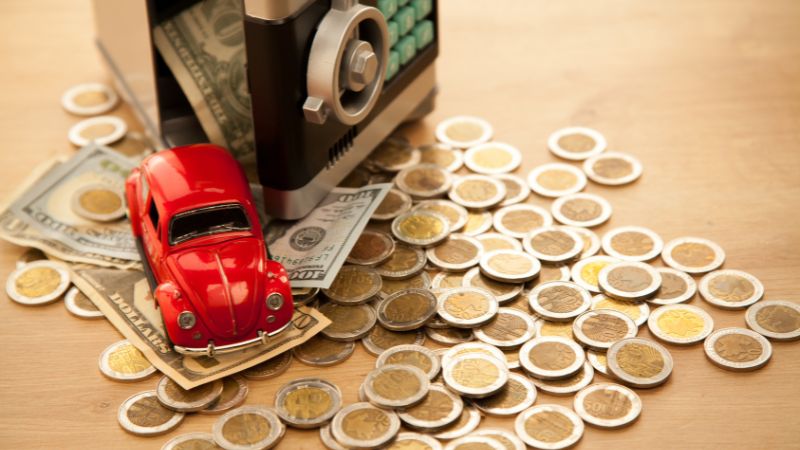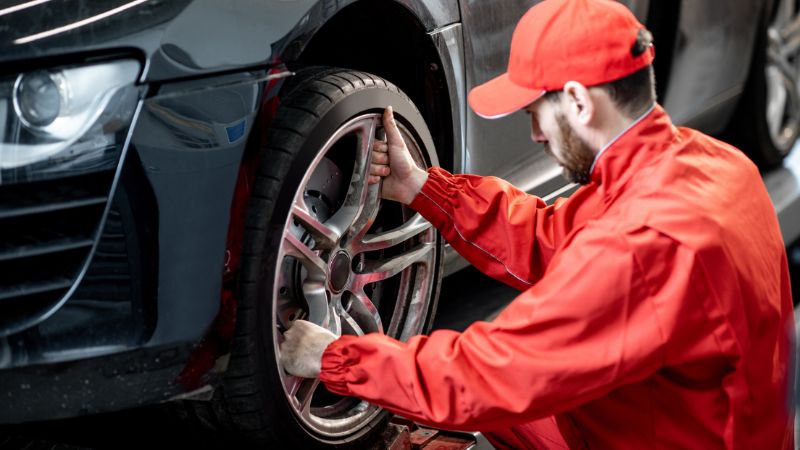When faced with car troubles, finding ways to save money on repairs can alleviate the financial burden and ensure a smoother experience. This comprehensive guide presents 11 ultimate tips to save money on car repairs, offering practical and proven strategies to avoid unnecessary expenses and streamline the repair process. From preventive maintenance tasks such as changing the car battery and replacing brake lights to seeking multiple estimates and shopping around for the best deals, these tips are designed to empower car owners to make informed decisions and save money on essential repairs. By implementing these cost-saving measures, individuals can navigate car repairs with greater ease and financial prudence.
Best Money Saving Ideas on Car Repairs
“Money Saving Tips on Car Repairs” offers practical advice for reducing automotive maintenance costs, including DIY repairs, comparison shopping for parts and labor, and prioritizing essential repairs. These tips empower car owners to make informed decisions, save on expenses, and prolong the lifespan of their vehicles. By following these strategies, individuals can minimize the financial impact of automotive upkeep while ensuring their cars remain in optimal condition.
Regular Maintenance Checks

Regular maintenance checks involve inspecting various aspects of your vehicle to ensure everything is in working order. This includes checking fluid levels such as oil, coolant, brake fluid, and windshield washer fluid. It also involves monitoring tire pressure and tread depth to ensure optimal performance and safety. Additionally, inspecting brakes, lights, and other essential components can help identify potential issues before they escalate into costly repairs. By staying proactive with regular maintenance checks, you can catch problems early on, saving you money in the long run by preventing more significant issues and avoiding expensive breakdowns.
DIY Repairs and Maintenance
DIY repairs and maintenance tasks can save you money on labor costs by tackling simple jobs yourself. With the right tools, resources, and a bit of know-how, you can perform tasks such as changing oil, replacing air filters, and installing new wiper blades in your own garage or driveway. However, it’s essential to be cautious and only attempt repairs within your skill level to avoid causing further damage. Online tutorials, car manuals, and forums can provide valuable guidance and step-by-step instructions for DIY car maintenance tasks.
Educate Yourself
Taking the time to educate yourself about your vehicle’s make and model can empower you to make informed decisions when it comes to repairs and maintenance. Understanding how different systems work and common issues associated with your car can help you communicate more effectively with mechanics and avoid unnecessary repairs. Online resources such as forums, blogs, and instructional videos can provide valuable insights into car maintenance and troubleshooting techniques. Additionally, familiarizing yourself with your vehicle’s owner’s manual can help you understand recommended maintenance schedules and service intervals, enabling you to stay proactive in caring for your car.
Comparison Shop for Parts and Labor
Before committing to any repairs, it’s essential to shop around for the best prices on both parts and labor. Get quotes from multiple mechanics or auto shops to compare costs and ensure you’re getting a fair deal. Additionally, consider purchasing aftermarket or used parts, which can often be much cheaper than brand new ones from the dealership. However, it’s crucial to balance cost savings with quality and reliability when choosing parts for your vehicle. While opting for the cheapest option may save you money upfront, it could end up costing more in the long run if the part fails prematurely or causes other issues.
Prioritize Repairs

Not all car repairs are urgent, so it’s essential to prioritize them based on safety concerns and their impact on your vehicle’s performance. Addressing critical issues first can prevent further damage and potentially save you money in the long run. Non-essential repairs can be postponed until you have the funds available or combined with other scheduled maintenance tasks to minimize costs. However, it’s crucial not to neglect necessary repairs for too long, as doing so could lead to more extensive damage and higher repair bills down the road.
Preventative Care
Investing in preventative care measures such as regular oil changes, tire rotations, and engine tune-ups can prolong the life of your vehicle and reduce the likelihood of costly breakdowns. While these services may require an initial investment, they can save you money by preventing more significant issues from developing. Following the manufacturer’s recommended maintenance schedule and staying proactive with preventative care can help you catch potential problems early on and address them before they escalate into costly repairs. Additionally, maintaining a clean and well-maintained vehicle can enhance its resale value and reduce the likelihood of unexpected repairs in the future.
Read More: 10 Unique and Sustainable Car Customization Ideas Under $100
Extend Warranty Coverage
Consider purchasing an extended warranty or vehicle service contract to provide additional coverage for unexpected repairs. While this may involve an upfront cost, it can offer peace of mind knowing that you’re protected against expensive repairs in the future. Be sure to carefully review the terms and coverage options of any extended warranty plan before purchasing to ensure it meets your needs and budget. Keep in mind that extended warranties typically have limitations and exclusions, so it’s essential to understand what is and isn’t covered before signing on the dotted line. Additionally, be aware of any deductibles or out-of-pocket expenses associated with warranty claims.
Keep Records
Maintaining detailed records of all repairs and maintenance performed on your vehicle is essential for staying organized and documenting the history of your car. Keep receipts, invoices, and service records for oil changes, tire rotations, and other maintenance tasks in a safe and easily accessible place. Not only does this help you keep track of when services were last performed, but it also provides valuable documentation that may be useful for warranty claims or when selling the car. Additionally, keeping track of maintenance schedules and service intervals can help you stay on top of necessary services and prevent overdue maintenance from leading to costly repairs.
Drive Carefully

Practicing safe driving habits can significantly reduce wear and tear on your vehicle, ultimately lowering the frequency of repairs. Avoid aggressive driving behaviors such as sudden stops, rapid acceleration, and excessive speeding, as these can put unnecessary strain on your car’s components and lead to premature wear and damage. Additionally, be mindful of road conditions and weather hazards that could impact your vehicle’s performance and safety. By driving carefully and responsibly, you can extend the lifespan of your vehicle and minimize the need for costly repairs.
Address Warning Signs Promptly
Ignoring warning signs such as strange noises, dashboard warning lights, or unusual vibrations can lead to more extensive and expensive repairs down the road. If you notice any unusual symptoms or indicators that something may be wrong with your vehicle, it’s essential to address them promptly. Schedule an inspection with a qualified mechanic to diagnose the issue and determine the appropriate course of action. By catching problems early on and addressing them promptly, you can prevent further damage and avoid costly repairs that could have been avoided with timely intervention.
Seek Second Opinions
If you’re unsure about a recommended repair or the estimated cost seems excessive, don’t hesitate to seek a second opinion from another mechanic or auto shop. Getting multiple assessments can help you make a more informed decision and ensure you’re not overpaying for services you don’t need. Be sure to provide each mechanic with the same information and ask questions to clarify any discrepancies between their recommendations. Additionally, consider consulting online resources or car forums for advice and insights from other car owners who may have experienced similar issues. Ultimately, taking the time to gather multiple opinions can help you make the best decision for your vehicle and your budget.
Conclusion
Saving money on car repairs is a crucial aspect of responsible vehicle ownership, and the 11 tips presented in this guide offer valuable insights for achieving this goal. By embracing preventive maintenance, seeking multiple estimates, and shopping around for the best deals, car owners can significantly reduce the financial impact of necessary repairs. Additionally, leveraging the power of the internet and being proactive in identifying potential issues early can contribute to substantial cost savings. Ultimately, by adopting these ultimate tips, individuals can navigate car repairs with greater confidence and financial prudence, ensuring a more manageable and cost-effective experience.
FAQs
How can preventive maintenance tasks help save money on car repairs?
Performing basic maintenance tasks such as changing the car battery, replacing brake lights, and regular oil and filter changes can help prevent costly repairs and extend the lifespan of the vehicle
What are the benefits of seeking multiple estimates for car repairs?
Seeking multiple estimates allows car owners to compare prices and ensure they are getting the best deal for the required repairs, helping them avoid overpaying for services.
How can shopping around for the best deals contribute to saving money on car repairs?
By researching and comparing prices from different repair shops, car owners can identify cost-effective options and potentially save a significant amount of money on necessary repairs
What role does the internet play in saving money on car repairs?
Leveraging the power of the internet can provide valuable information on repair costs, reputable repair shops, and potential issues, empowering car owners to make informed decisions and save money on essential repairs




